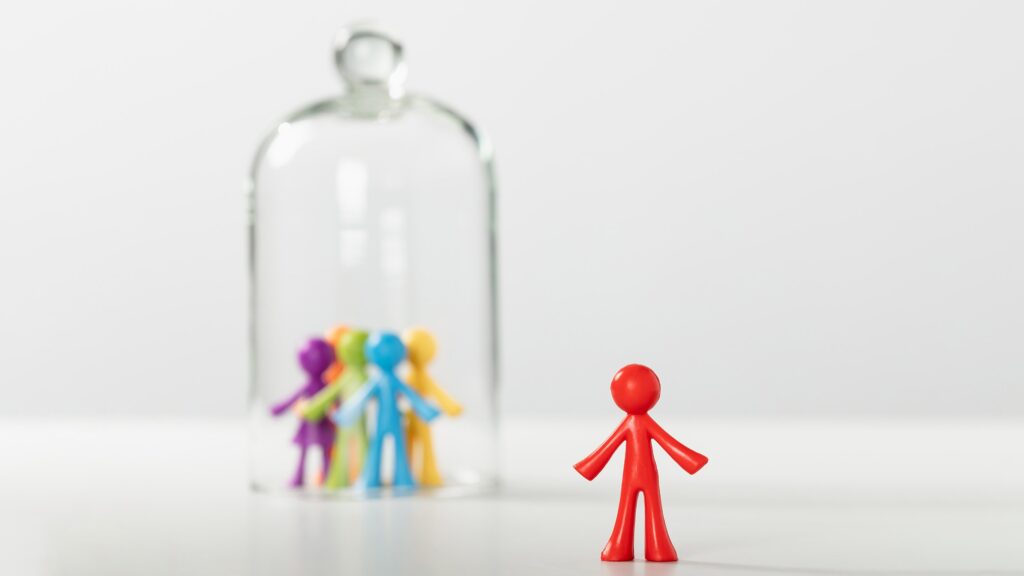You’ve been interested in photography for a while, you like taking pictures, and you’re pretty good at it…but somehow you don’t feel like you can call yourself a “photographer” yet. Why is this happening? And when will we truly call ourselves “photographers” and stop feeling guilty?
Sean Tucker discusses these issues in his usual deep, eloquent, and supportive manner in a recent video. We talk about why you feel like a fraud and how to overcome it.
impostor syndrome
I deeply resonate with this video. Because even though I’ve been a photographer for over 15 years, I still don’t call myself a “photographer.” I feel like a fraud when others call me that. Maybe it’s because I don’t do it for a living (I never have), but maybe it’s because of the impostor syndrome I’ve felt in every field I’ve ever worked in. No.
“People who suffer from impostor syndrome believe that they are unworthy of their accomplishments, or indeed of high praise in general,” explains Psychology Today. “They feel that they are not as capable or as intelligent as others think they are. And soon people will discover the truth about them.”
Why does it happen?
There are several reasons why imposter syndrome develops. Some personality traits play an important role, but it can also be a result of the working environment. In his video, Sean explained four reasons we may experience this as photographers.
Perfectionism: People with perfectionistic tendencies often believe that their work must be perfect to be worthwhile. This can lead to constant self-criticism and fear of making mistakes. As Sean points out, “Anything less than perfect is a failure.” This mindset can be paralyzing and prevent you from sharing your work and taking risks.
Anxiety: People who feel anxious often doubt their own abilities and knowledge. They may believe that they must be an expert in all aspects of photography for it to be considered legitimate. This can leave you constantly feeling unprepared or inadequate. Sean explains: “We have a deep fear that if we don’t have all the answers, then we’re probably incompetent.” This resonates with me the most.
Struggle: Fear of struggle can stem from the belief that talented people should have easy success. When faced with challenges and setbacks, you may question your own abilities and assume that others are naturally gifted. “We have this false assumption that everyone else is finding this out so easily,” Sean points out. And it’s not. In my opinion, social media can greatly contribute to this belief. But believe me – we’re all in the same boat. We all struggle, but no one knows what they’re doing. I know it sounds dark, but I think there’s beauty in it, and it’s comforting to know you’re certainly not alone.
Isolation: Fear of being exposed and criticized can lead to isolation. You may avoid sharing your work or asking for feedback, believing it will only expose your shortcomings. Sean is most at this point himself and emphasizes the importance of overcoming this fear by connecting with others.
How can I overcome impostor syndrome?
I know it’s difficult, but there are ways to overcome this creeping feeling of inferiority, or at least weaken it. Sean suggests four strategies to make things easier:
Own your emotions: If you want to deal with your emotions, you must first recognize and name them. First, recognizing impostor syndrome within yourself can help you face it (know your enemy, right?). Also, understanding that impostor syndrome is a common experience can help you feel less alone and embarrassed. By acknowledging your feelings, you can take the first step towards overcoming them.
Gain perspective: You should avoid comparing yourself to others. Especially if you compare yourself to someone who has been at the job longer. Instead, focusing on personal growth and progress can give you a healthier perspective. Sean emphasizes the importance of “having an honest and level-headed view of what the situation really is.”
Celebrate growth: In some ways, this leans into the previous point. It’s important to recognize and celebrate your progress instead of dwelling on what you still have to accomplish. Recognizing and appreciating the journey can help you overcome self-doubt and stay motivated. “Shift your focus to the journey you’ve been on.” Look at cringe-worthy photos from your early days and realize how far you’ve come and how much progress you’ve made. The only person you can compare yourself to is your past self. If you feel like you’re better than them, you’re great!
Get connected: Building a supportive community provides encouragement, feedback, and a sense of belonging. Connecting with others who share similar experiences can help reduce feelings of isolation and self-doubt. Sean emphasizes the importance of “investing in creative friendships.” Stay in touch with other photographers and join local photography clubs, Facebook groups, and workshops. Connecting with others is generally a good idea when you’re facing hardship, and this is no exception. If you can’t overcome impostor syndrome, book in a few therapy sessions as well. This does not prevent you from being creative and enjoying life.
So, when can you call yourself a “photographer”?
As someone so beautifully said in the comments of Sean’s video, “From the moment you intentionally compose a photo, you are a photographer.” I have no idea who the person behind the original quote is But it’s so beautiful and liberating. Simply put, you can always call yourself a “photographer.” I might not be the one to tell you this, considering I’m still struggling with it myself. But hey, in recent conversations with my partner and family, I’ve started calling myself a “photographer.” Baby steps. 🙂
(When can I call myself a “photographer”? | Sean Tucker)

